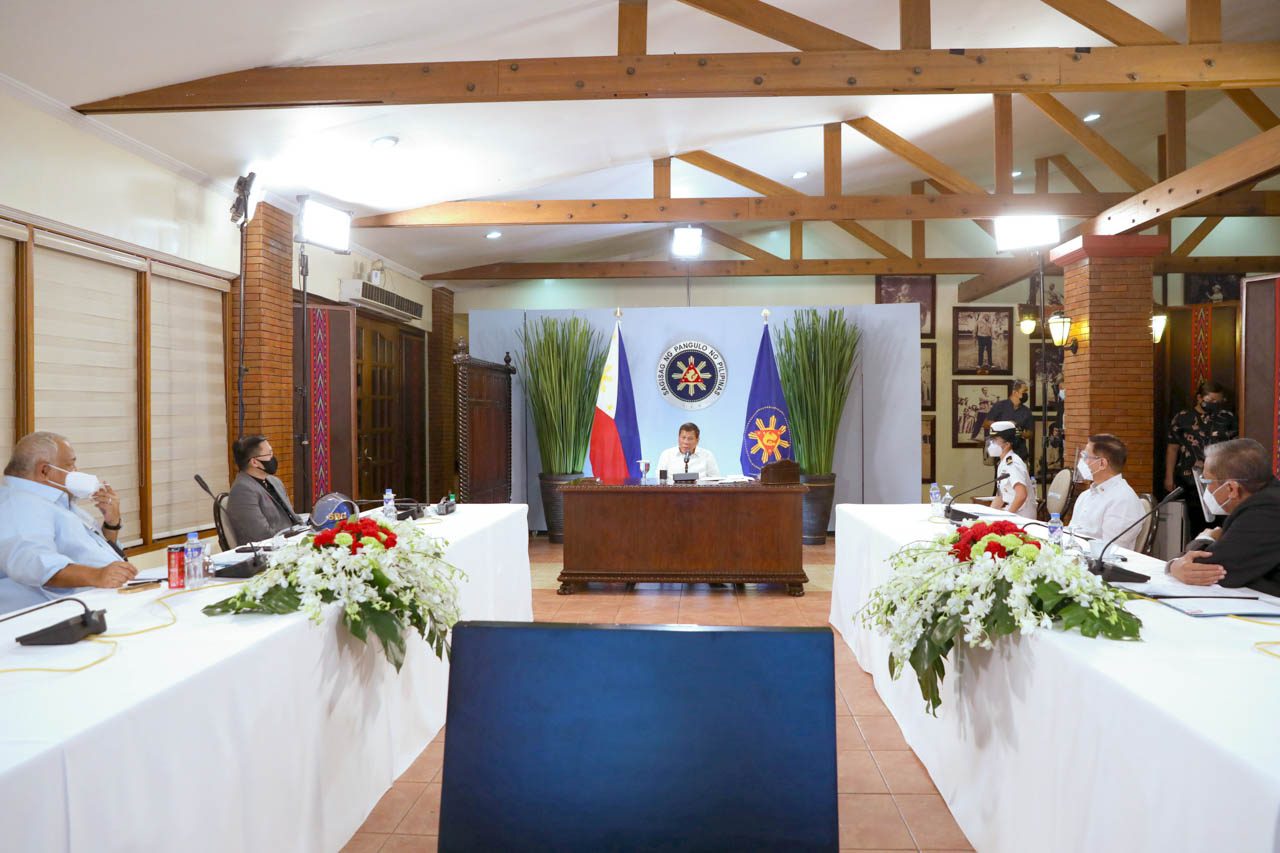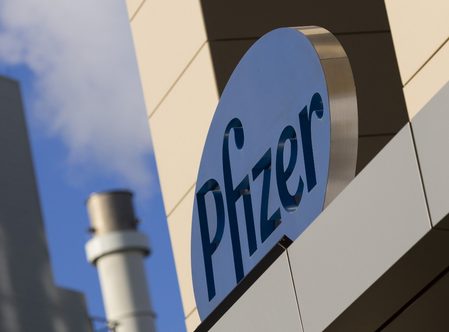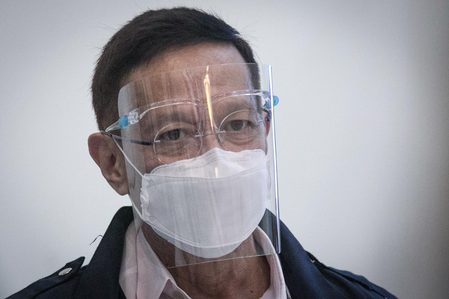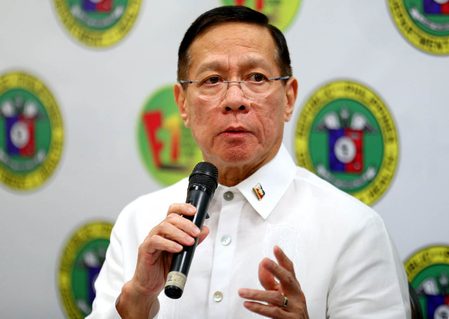SUMMARY
This is AI generated summarization, which may have errors. For context, always refer to the full article.

From the early days of the pandemic, President Rodrigo Duterte has repeatedly touted the need for a vaccine to salvage the country from COVID-19.
Several of the Chief Executive’s speeches have been peppered with statements on the much-needed relief a vaccine would bring to the economy, along with promises to inoculate the entire population for free.
But new details shared by Health Secretary Francisco Duque III showed it took the Duterte administration about 4 to 5 months to sign a confidentiality data agreement (CDA) that would cover negotiations with vaccine developer Pfizer, raising questions about whether government officials moved fast enough to secure for the country the scarce supply.
From when Pfizer officials approached the Philippine government in late June to start discussions on its vaccine candidates, it was only in late October, or 4 months after, that the CDA, a preliminary document, was signed. With other government officials like vaccine czar Carlito Galvez Jr, the timeline stretched further to November when a CDA was finalized.
Duque detailed the timeline of critical dates in the government’s dealings with Pfizer officials in response to allegations that he bungled a deal to secure the vaccine supplies by January.
The health secretary found himself on the defense after Foreign Secretary Teodoro Locsin Jr posted a cryptic tweet that an offer brokered by him, Philippine Ambassador to the US Jose Manuel “Babe” Romualdez, and US Secretary of State Mike Pompeo would have locked in 10 million doses of the vaccine by as early as January 2021 “but that somebody dropped the ball.”
“I have the chronology of events so that this is all documented. So there is no such thing as ‘I did not act quick enough,’” Duque said in an interview on ANC Headstart on Thursday, December 17.
Red tape
What Duque’s timeline does show is how a mix of bureaucratic red tape, coupled with the uncertainty of a new vaccine, hampered the process of negotiating a purchase deal long before it could even start.
In the case of a CDA – a preliminary document that would allow scientists to review Pfizer’s vaccine development data – signing this would be the first step in opening negotiations on the possible securement of doses.
Yet government agencies passed the buck in signing a CDA on behalf of the Philippine government.
First, from the DOH, Duque said an inter-agency task force resolution mandated that Pfizer’s overview on its vaccines should be given to the Department of Science and Technology-Philippine Council for Health Research and Development as the lead agency in vaccine assessment.
This differed from the preference of Pfizer, which initially wanted the Office of the President to sign the CDA on behalf of the government. It would take another month for the Office of the Executive Secretary (OES) to designate the DOH as signatory.
While the period for signing a CDA varies for the parties involved and terms being discussed, the global race to secure limited vaccine supplies has underscored the need not just for money, but agility from governments to move on locking down purchase deals. In a pandemic where hundreds may become ill or die in a single day, time is a precious resource.
How much of a factor was red tape in the weeks it took the government to sign a CDA with Pfizer? Duque was evasive, saying a new vaccine should afford the government some “allowance.”
“You have to give allowances to the fact that, I for one, this is my first time to have signed a CDA. So I have to be very, very cautious in what I am signing to ensure the government’s interest is first and foremost protected. That there are no onerous provisions,” Duque said.
Asked why the OES, on behalf of the OP, passed on the responsibly to the DOH, Duque said the decision was also fueled by caution.
“It was his judgment that because (a) vaccine is health-related, it was directly aligned to the mandate of the DOH. So that reason is well grounded,” he said.
On the other hand, the health secretary said the process for evaluating vaccines was also revised in the context of the pandemic.
Whereas the DOH was usually the only agency that assessed vaccines to be used in the Philippines, the inter-agency task force agreed the DOST would lead reviews through an expert panel focused on the scientific assessment of a COVID-19 vaccine.
The arrangement, though well-intended, exposed how added layers of screening could prove detrimental if not optimized for a highly competitive vaccine like Pfizer and BioNTech’s.
“Medyo talagang nung una, nagkakaproblema kasi (At the start, this was a problem because) if we follow the process, dapat nga ‘yan (that should be) DOST, based on the IATF. It was Pfizer that wanted the Office of the President,” Duque said.
Balancing act
This battle against time had to contend with the uncertainty over a new vaccine.
As a public official, Duque said protocols must be followed and that “we cannot just be buying a vaccine like chocolate.” Further, as a medical professional, Duque said his principle was to remain prudent.
“My overriding principle in my practice of medicine is always to err on the side of caution,” he said.
For Duque, another factor that influenced his actions was the memory of the Dengvaxia scandal that tanked child immunization rates in the Philippines. The aftermath took its toll on children as the Philippines experienced a measles and polio outbreak it continues to address until today.
“There are too many unknowns and that’s why I said earlier, my overriding principle is, we have to be cautious with the health and lives of our people. We have long experience with different vaccines and we don’t want a repeat of very costly lessons we experienced in the past with some of the vaccines,” he said.
The following key dates, as enumerated by Duque, detail this process:
(We have included all dates mentioned, along with Duque’s description of events that took place on specific dates.)
June 24, 2020 – Pfizer sends an overview of its candidate vaccine development and manufacturing program to the Philippine government.
June 29, 2020 – DOH, through its pharmaceutical division, refers the proposal to the Department of Science and Technology-Philippine Council for Health Research and Development (DOST-PCHRD) as the lead agency in the management of vaccine development for COVID-19 response.
August 6 – DOH sends a letter to Pfizer reiterating that its overview should be given to the DOST.
August 7 – A meeting is held between Pfizer and DOH officials to discuss the use of its mRNA or messenger RNA technology in the company’s potential COVID-19 vaccine.
- Duque said that this meeting is where he raised many questions on the use of mRNA vaccines and whether or not these have been deployed in different countries. “And they said yes for HIV-AIDS and that’s about it. There has been no experience; DOH neither has experience in these long years of its immunization program, we never had this kind of technology,” he said.
August 11 – Pfizer sends a draft CDA to the DOH.
- Duque said the CDA was initially meant to be signed by the Office of the Executive Secretary (OES) on behalf of all government agencies.
- This arrangement would have eliminated the need for multiple government agencies to sign their own CDA with Pfizer. In a recent forum, the DOH said that they were trying to streamline the current setup which saw different agencies each having their own CDAs.
August 26 – DOH re-endorses to Pfizer comments from “relevant technical offices” in the Philippine government.
- Duque said he cannot disclose details of the agreement or its provisions as he is bound by the CDA.
September 4 – Pfizer meets with key DOH and DOST officials, as well as Executive Secretary Salvador Medialdea to provide updates on their vaccine development.
- At this time, Duque said Pfizer explained it had two candidates qualified in terms of a safety and efficacy profile after Phase 1 and 2 trials.
- He also said this is when the company disclosed it had the potential supply of 100 million doses by the end of 2020, though this would be subject to regulatory approval. The company added it had a projected production of 1.3 billion doses by 2021, he added.
- Duque claimed 10 million doses were said to be set aside for the world market “outside of those that were given to the originating countries like the US,” in effect, disputing Locsin’s claim that the amount was offered specifically to the Philippines.
Aside from this, Duque said the company was not interested in conducting Phase 3 trials – something the country preferred so that it could clear the vaccine for “ethnic diversity.” Researchers often test medicines on diverse populations as not all race and ethnic groups will respond the same way to medicines and potential side effects.
On Friday, December 16, Locsin maintained an offer from the US had been made on Pfizer’s vaccine but that it has since gone to Singapore.
September 11 – Pfizer receives the DOH’s comments on the CDA
- Duque said there was a back and forth between the government and Pfizer officials on certain provisions that were supposedly “one-sided.”
- “This is not as simple as drafting a document for a medicine or vaccine that you’ve used in the past,” he said in Filipino.
September 14 – Duque receives a revised draft CDA with revisions from the office of the deputy executive secretary. He says he also forwarded a summary of revisions from Pfizer and the DOH, among others.
September 17 – The DOH sends a letter to the OES on the CDA. Reviews take place over the next few days.
September 24 – Pfizer sends an email to the DOH, saying it had been advised by the Office of the President, through the office of the executive secretary, that the DOH will be the signatory to the CDA. The company also requests for a coordination meeting. “So we met immediately,” Duque said.
September 25 – The DOH responds to hold a meeting with Pfizer.
- Duque said this was needed since Pfizer initially wanted the President’s office to sign the CDA.
“Hindi nga ako pupuwede mag-sign (I really cannot sign) for the national government. I can only sign for the DOH. And that is why it is small wonder that DOST also signed in November a separate CDA with Pfizer. Even Secretary Galvez signed a separate CDA with Pfizer also in November,” Duque said on Thursday.
October 20 – Duque signs the CDA with Pfizer.
- According to him, Pfizer agreed that the DOH could sign on behalf of the government, on the condition that it would sign separate CDAs with different agencies as needed.
Significant deal
While negotiations are ongoing between Pfizer officials and the Philippine government, what may have been a possible delay in signing necessary documents could prove costly for Filipinos.
Though Pfizer’s vaccine possessed a logistical headache for the Philippines, it has a strategic position in attaining emergency authorization from the FDA.
For one, the US FDA has issued its own emergency authorization for the vaccine – a major factor and requirement to attaining a similar emergency clearance from the Philippines. This is buoyed by several clearances that regulatory agencies in countries like Canada and the United Kingdom have granted the company.
Pfizer and BioNTech’s vaccine was also the first to show promising results of 95% efficacy. This was announced on November 18.
Meanwhile, for all of the health secretary’s uncertainty on the vaccine, a CDA could have covered in part, if not full, a review of scientific and trial data that would shed light on the way the vaccine worked. Duque mentioned that the agreement was to facilitate the sharing of data.
For now, Filipinos must wait as no details on the specific number of doses to be purchased by the government have been disclosed. On how soon these may be deployed, Galvez said Pfizer’s vaccine may arrive in the country by the 3rd quarter of 2021 at the earliest, along with the bulk of other vaccines eyed by the Philippines.
On Thursday, December 17, Senator Francis Pangilinan said that if it can be established that a government official “inexcusably” failed to act, then he may be sued under Republic Act 3019 or the Anti-graft law.
Specifically, Section 3(e) of RA 3019 listed corrupt actions to include:
“Causing any undue injury to any party, including the Government, or giving any private party any unwarranted benefits, advantage or preference in the discharge of his official administrative or judicial functions through manifest partiality, evident bad faith or gross inexcusable negligence.”
Former Supreme Court spokesperson Ted Te also said non-feasance or the failure to perform duty by a public official “amounts to an offense cognizable by the Ombudsman.”
Asked why he signed the CDA 3 weeks after the OES passed the responsibility to him, Duque said a final review on some contentious provisions took place but that he signed the agreement on the same day he consulted Deputy Executive Secretary Michael Ong on these.
“I put my life on the line for this. I was also thinking that maybe after sometime this vaccine will prove effective. That was my judgment call,” he said. – Rappler.com
Add a comment
How does this make you feel?






![[Just Saying] Diminished impact of SC Trillanes decision and Trillanes’ remedy](https://www.rappler.com/tachyon/2024/04/Diminished-impact-of-SC-Trillanes-decision-and-remedy.jpg?resize=257%2C257&crop=273px%2C0px%2C720px%2C720px)
![[Rappler Investigates] Son of a gun!](https://www.rappler.com/tachyon/2024/03/newsletter-duterte-quiboloy.jpg?resize=257%2C257&crop=450px%2C0px%2C1080px%2C1080px)
There are no comments yet. Add your comment to start the conversation.